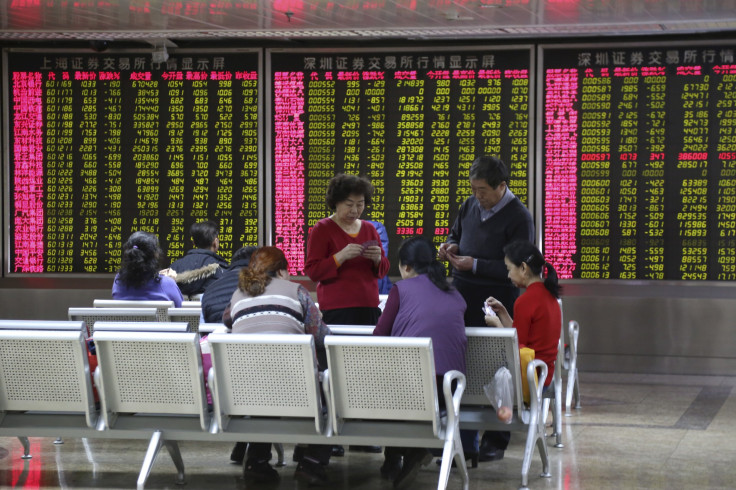Asian Market Opening: Asian Shares Pressured, South African Rand Dives

Asian share markets faced a testing time on Monday after Wall Street suffered its worst starting week in history and doubts over Beijing's policy choices sent investors into the arms of the safe-haven yen and sovereign bonds. The absence of Tokyo for a holiday only made liquidity even harder to come by, heightening the risk of volatility. Indeed, currency markets were already seeing wild swings with the South African rand ZAR=D3 collapsing over 10 percent at one stage.
MSCI's broadest index of Asia-Pacific shares outside Japan .MIAPJ0000PUS lost 0.6 percent, led by a 1.7 percent dive in Australian stocks .
E-mini futures for the S&P 500 ESc1 were down 0.8 percent in a sizable move for Asian hours.
Commodities also remained under fire as Brent crude oil LCOc1 dropped another 50 cents to $33.05 a barrel. U.S. crude CLc1 was off 59 cents at $32.57.
While many Asian markets did get a modest bounce on Friday, they still suffered their biggest weekly fall in more than four months.
Perceived missteps by China's authorities in controlling their share market and currency have led to concerns Beijing might lose its grip on economic policy too.
That heightened tensions ahead of China trade on Wednesday where further declines are expected in exports and imports, underlining just how anemic world trade flows are right now.
Figures out over the weekend showed consumer inflation stuck at a subdued 1.6 percent in December, while producer prices were down a steep 5.9 percent on the year - a deflationary pulse that is being felt across the globe. ECONCN
Both the Dow .DJI and S&P 500 SPX> had their worst five-day starts in history, with the Dow down 6.2 percent for the week and S&P 500 6 percent. The Nasdaq .IXIC sank 7.3 percent.
Neither is the corporate news flow likely to get any cheerier with the fourth-quarter results season, getting under way this week, expected to be a tough one.
S&P 500 earnings are forecast to have dropped 4.2 percent, the second-straight quarterly decline led by hard hit energy and materials companies.
The pain in stocks and unease over China even outweighed the positive impact of December's super-strong U.S. payrolls report and burnished the appeal of higher-rated government bonds.
Yields on 10-, 7-, and 3-year U.S. Treasuries all set to their biggest weekly declines since early October last year, while five-year yields dropped by the most since Sept. 2013.
In currency markets, the main beneficiary was the yen which is often favored in times of stress as Japan remains the world's largest creditor nation.
The dollar fell half a yen to a near five-five month low of 116.70 yen JPY= in early trade, before steadying around 117.03.
Dealers said Japanese investors seemed to be bailing out of long positions in the South African rand by selling rand for dollars and then those dollars for yen.
The dollar surged as much as 10.3 percent at one stage to 17.9950 rand ZAR=D3, before tracking back to 16.8550. That was still up sharply from 16.3150 late in New York on Friday.
The euro was well supported at $1.0937 EUR= while the dollar index dipped 0.26 percent to 98.279 .DXY.
(Reporting by Wayne Cole; Editing by Eric Meijer)
© Copyright Thomson Reuters {{Year}}. All rights reserved.





















